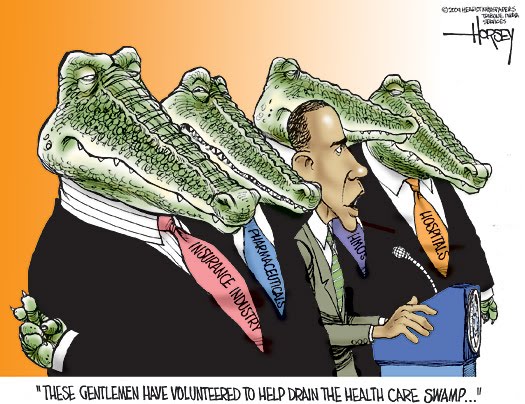The PARTITION OF INDIA: 1947
In 1947, 12.5 million people were forced to undertake mass migration in British India. As poorly coordinated population exchange, one million people were killed with many stranded in communities as refugees during the Partition. Cycil Radcliffe was responsible for organizing the new border between the sovereign states of Pakistan and India. He almost certainly indirectly led to the cleansing of areas. There was a movement to drive the minority out in order to secure the majority’s territory. The rational to kill those of another cultural group are clear: a) expanding the power of ones group, b) securing ones culture against compromise with another. The depopulation of entire regions with the goal of creating a homogenous community leads to violence and self-destructive for the acting community members.
Century of the Self I
The Significance of the Mexican-American War 1846 to 1848
The conflict expended American territorial claims westward to California from the Rio Grande which divides portions of Northern Mexico with the state of Texas. The war was controversial for being a blatant land grab condoned by then President Polk. Political theorists will note that Henry David Thoreau’s Civil Disobedience was written as a response to this war, slavery, and also the selfish streak typifying American individualism. Thoreau’s refusal to pay taxes is a model for civil disobedience against unjust wars and an unjust government. Gandhi’s Satyagraha, Nelson Mandela, and Martin Luther King Jr’s campaigns were profoundly influenced by Thoreau’s work. Draft dodgers of the Vietnam war era as well as draft dodgers of the Iraq War 2003 follow from Thoreau’s complaint that “… There are thousands who are in opinion opposed to slavery and to the war, who yet in effect do nothing to put an end to them.””
The Mexican-American War also produced some of the technological changes as well as the political turmoil that eventually led to the American Civil War. Unsettled disagreements concerning state-level rights over slavery were further exacerbated by an increasing militarism. To be American President, one necessarily had to have commanded forces into battle. War continues to define the American national politics. The war was extremely unbalanced with American victories recurring against a technologically disadvantaged Mexican opponent. Mexico was also politically fragmented. The other, most obvious consequence is that California, New Mexico, Arizona are American states.
Better Than Nothing? US Healthcare Reform

OBAMA’s HEALTHCARE REFORM: this is not universal healthcare
Obama’s new policy will mandate everyone into insurance. The reform delivers more customers to the insurance companies: so insurance companies win but they will have to deal with new levels of regulation. The Government will be paying the insurance companies who then stand to gain somewhat out of a nevertheless increasingly regulated healthcare model. Obama was calling for oversight at the federal level. This plan is better than the status quo but not by much. Obamacare is rather a watered down health reform with many left wing politicians believing that the plan does not do enough. They have certainly passed something DESPITE inordinate capital being expended to emphasize the weaknesses of other system of healthcare by the insurance companies and recalcitrant Republicans.
Dr. Marcia Angell on the Dissent: She believes the reforms are a mistake. Angell believes that Obama has made an amorphous plan that doesn’t go far enough: it keeps the private insurance industry in place. It will mean government mandated subsidizing of the health insurance industry. Obama gave away the store by compromising with the pharmaceutical industry on a policy level. On the political level we understand why Obama is struggling: Republicans, confused public. Now Obama is fighting for the expansion of the insurance companies. Like other industries, the health insurance companies will continue to raise their premiums which the Government will then have to pay for. The government is going to foot the bill. AS POLICY, this Healthcare reform is disappointing: it is a step in the wrong direction. Democrats have outsmarted themselves with the hope of getting this bill passed, then having Obama reelected in 2012. OBAMA’s PLAN IS A ‘THANK YOU SANTA CLAUS: love, the healthcare insurance industry’. The healthcare insurance industry are going to get more customers: and the bill does not make serious steps to reduce the cost of US healthcare which is currently twice any other Western democratic country (per capita).
The Key Points: Very Disappointing
– The reforms calls for keeping 26 year olds under their parent’s plans.
– The reforms calls for the end discrimination based on pre-existing conditions.
– The reforms calls for the mandating of every individual into the health insurance system (on Gov’t funds).
– The reforms will reduce the deficit in the next 10 years by reducing the costs of healthcare.
– The bill will eventually tax the Cadillac healthcare plans, BUT the health insurance companies still remain.
– Obama’s plan might not actually work to force everyone into the health insurance system: Massachussetts’ demonstrated how such a system might fail where not everyone gets insured as individuals decided to seek coverage.
– US cannot aim for a universal healthcare system within a prism where the insurance industry calls the shots.
– AMERICAN’s need to think about reform again after 2010 but that’s probably in 15 year or so. American’s have to engage in dealing with its poorly ranked healthcare system again in a rational manner. American healthcare is ranked 27th in the world below Bolivia. These reforms are not even remotely a form of universal healthcare if the system remains a privatized one.

